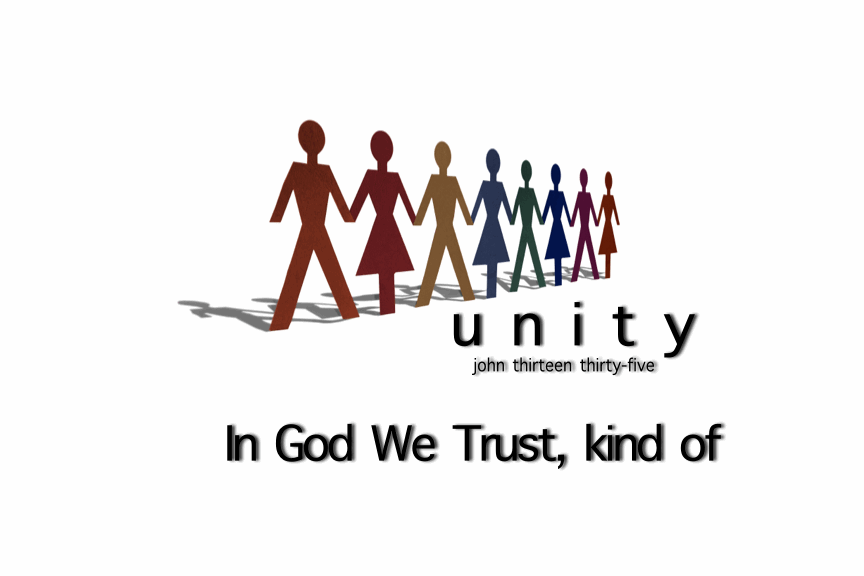
About the author : Antwuan Malone
Antwuan Malone is a Ministry Director at ELEVATE Young Adult Ministry (elevateministry.net) where empowers young adults toward Christian leadership. He is passionate about seeing young adults take their place in church history by drawing near enough to God to hear his call on their life, and courageously living in obedience to that call.
Church and the Almighty Dollar
In God We Trust: Easier Said Than Done
Nothing is more polarizing than money. Nothing segregates society, draws a deeper line in the sand than the almighty dollar.
We don’t need a Bible to tell us money is the root of all sorts of evils. We can see what it does to relationships. And that’s because money is about “me.” We should expect money-driven division in the me-driven society living outside God’s church. But inside the body of Christ things are supposed to be different. Supposed to be.
Cynicism about church finances is nothing new. I’m sometimes cynical, myself, about the motives of pastors and church leadership teams.
For the most part, I think the mishandling of church finances is accidental. I believe churches are serious about stewarding God’s money. They mean well. But I’d say the same for the people Jesus whipped out of the temple in John 2:15. And their good intentions didn’t stop Jesus from cracking the whip and turning over their change tables.
With the country financial peril, when so many need so much, every dollar counts. And with such need in our world, our country, our neighborhoods, maybe even under our own roofs, you can bet what the church does with its money matters. But the situation should not feel hopeless. Rather, we should see it as an opportunity. Right now, churches could use money as one of the many streaming beams of God’s saving light to shine hope into the lives of the needy around us. We can show the world just how “not of the world” we are.
So why aren’t we seizing the moment?
When Jesus flipped those tables on their head, He was dismantling their financial culture.
Ask yourself. If Jesus were to walk into your budget meetings, would he dump your tables? Does your churches money plans and goals need turning upside down?
More Than Tithing
Generally, when money and church come up, so does tithing. The focus is usually on the member/congregation. But what about the church. Sure, many churches rightly “tithe” to charities and such. But as a community of churches, as the body of Christ, the way we spend our money is not very other-worldly.
From the outsider point-of-view (and even sometimes from a deeper inside vantage point), the church is competing. It is self-centered. It’s goals are ego-centric, designed to grow an organization rather than an organism. To the world, money divides the church in the same way it divides any other corporate entity in society. And often, the world is right. The end game of many church budgets is not to impact the lives of the fellow Christians, churches and the lost. No, the goal is to grow tall. To build more. To stack money. To play it corporately safe.
This propaganda, this modern-day tower of Babel, has created a line in the sand the size of the Grand Canyon.
If the church were serious about modeling the way Christ served people, then pastors would urge church leadership and budget teams to heed the very words they use in their tithing epithets: “put your money where your mouth is.” These leaders are content to tell individual families to worship God through tithing, even when doing so means risking their lights going out, or their kids missing dinner a couple of nights. God will provide, they say. And they are right.
But the church budget does not model such a radical philosophy of giving. The money given to the body of Christ should…
- Evangelize the lost
- Edify the saints
- Encourage the despondent
… like every other effort in the church. We can’t employ business models if we take serving seriously. Business organizations do not thrive under the above conditions. Their ruse of caring is the means to a self-gratifying end. Business models cannot govern spiritual entities. Organization thinking cannot grow an organism.
The church must allow Jesus to turn its tables upside down.
We are the opposite of the world. We give to give away. We don’t stockpile. We seek opportunities to further the kingdom of God in dramatic ways. We reach out to fellow churches who need a financial lift. We pool some of our money together to have “all things in common.” We show the world that God’s Church is not primarily about facilities, programs and fundraising goals. We show that we serve God, not Mammon. That we are not the Rich Young Ruler who could not give away his goods to serve the poor. We show that we are willing to do without, for the sake of doing for others. When we begin taking these steps, money will become an enabler, not a divider.
Then. We and the world can see the church flourish.
Then. We can show the world a unified, together church.
Then. We can be enablers and creators of “cheerful givers.”
But until then, we will fail in the shadows of worldly success, which, frankly, is really no success at all.
What are some ways the church can use money to be more united?





